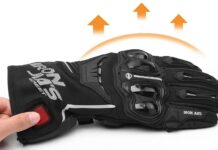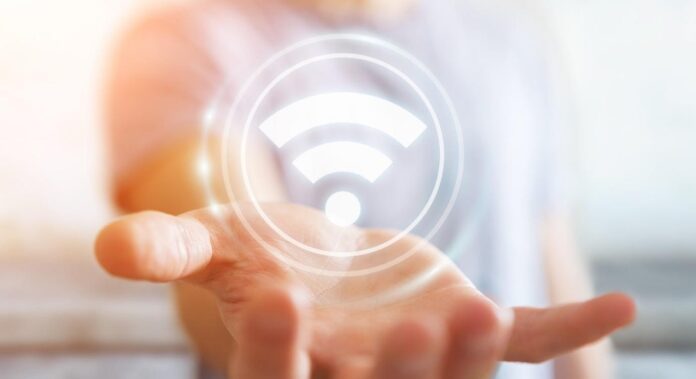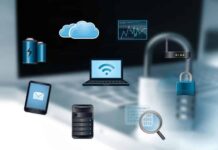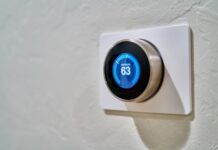The need for Wi-Fi access is becoming necessary in any public place, including hotels, libraries, restaurants, and airports. With the rapid growth of Wi-Fi infrastructure, it looks like businesses are now taking it as a competitive advantage. It’s common to enter a restaurant, and you’re greeted with a huge poster indicating that there is free Wi-Fi available.

Whether you’re a remote worker or a social media addict, being able to access free public Wi-Fi appears like a huge relief. Imagine having to browse all day, check those emails, catch up with friends online, and watch some YouTube videos without spending a penny.
But as you grab a free browsing opportunity, you must also know that there are risks associated with public Wi-Fi. They are the biggest targets of hackers and malware attacks. What you thought as an opportunity to save money can end up costing you a lot if your information gets in the wrong hands.
This doesn’t mean that you need to avoid public Wi-Fi altogether. Here are essential tips that will help you understand how to connect to Wi-Fi in a public place without experiencing any security threats.
1. Only Use a Secure Public Wi-Fi
You must have come across multiple networks the moment you switch on your Wi-Fi. Have you noticed that most of these networks don’t even have security requirements for using, and you can connect to them directly? You probably thought that those network owners were very generous.
Well, login to unsecured networks at your own risk because these are traps that hackers use to lure you. Wi-Fi Phishing is a method hackers use to trick you into login into a public Wi-Fi with your personal information. As long as you log in, they end up stealing your personal info and use it for malicious activities.
Avoid jumping into the strongest signal you meet without verifying if the network is secured or not. Take your time to check carefully and only pick a network that you’re sure of its legitimacy. Check the network with a lock icon and one that gives you a “Security Recommendation” warning before you can use it.
If you login to hotspot networks, you won’t see the lock, but this doesn’t mean they’re unsafe because they use what’s called “walled garden” security. With this security, you’ll have to log in with a browser to access the network. The login password is available through the hotspot, and you can only get it if you ask for permission.
If you’re in a hotel, a conference, or your regular coffee shop, stick to the place’s Wi-Fi where you get all the login details to the network you want to use. At least such networks have security measures in place to deter hackers from accessing their guests’ personal information.
2. Implement Additional Security
To have the Wi-Fi you’re using secured, doesn’t mean you’re completely safe from online criminals. The hotel’s management must have done all it takes to ensure their network does not corrupt their visitors’ data. But it’s still your duty to enhance security on your end.
How about you find some extensions that force encryption on websites that are not encrypted? This way, you can at least ensure additional security on some sights, if not all. One way to do this is by using a virtual private network (VPN) to access any website you need to use.
Sometimes you can get to a public place and find multiple Wi-Fi signals available at your disposal. This will make it hard for you to identify a genuine connection from a risky one. Don’t start playing a guessing game because this is the work of a Wi-Fi analyzer.
If you travel a lot, you must be a regular user of public Wi-Fi either in a hotel or airport. You should consider getting the best WiFi analyzer for Mac that helps you identify if the network you’re using is reliable or not.
With the analyzer, you can also tell if something changes with your internet connection. If this happens, you should log out of the site immediately and protect your data from any threat.
3. Protect Your Personal Data
When on a public network, you should avoid the temptation of going through your personal account using public Wi-Fi. Don’t access your bank account, or credit card details, or pay your bills. Don’t even get tempted to file your taxes on a public hotspot even if the deadline is around the corner.
You can save those transactions to the time when you can finally access your home network. If you must do it, make sure you only send your personal information on websites you’re completely sure that is secured. Make sure the sites you’re visiting are also encrypted.
If you find out that the site you just used is unencrypted, log out right away. Even if it’s fully encrypted, don’t stay too long and don’t stay permanently signed in. As soon as you finish what you’re doing, log out immediately so that you don’t leave any loopholes for hackers.
If you’re using passwords, don’t use the same one on multiple sites. Hackers are very wise, and once they have access to one account’s details, they can use the same to log in to another. Create unique passwords for every account and use a reliable password manager.
The Security of Your Personal Information Is in Your Hands
Using a public network is a clear security threat, and you should try your best to avoid the risks altogether. However, if you must use public Wi-Fi, try your best to make your activities safe from online threats. It’s essential to learn tips for Wi-Fi for your business and personal information security.
If you need more tech information for additional protection and business growth, don’t hesitate to browse the site.





















